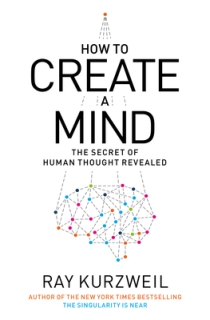- HOME
- INTRO TO THE FORUM
- USE AND MISUSE
- BADLY WRITTEN, BADLY SPOKEN
- GETTING
TO KNOW ENGLISH - PREPARING FOR ENGLISH PROFICIENCY TESTS
- GOING DEEPER INTO ENGLISH
- YOU ASKED ME THIS QUESTION
- ADVOCACIES
- EDUCATION AND TEACHING FORUM
- ADVICE AND DISSENT
- MY MEDIA ENGLISH WATCH
- STUDENTS' SOUNDING BOARD
- LANGUAGE HUMOR AT ITS FINEST
- THE LOUNGE
- NOTABLE WORKS BY OUR VERY OWN
- ESSAYS BY JOSE CARILLO
- Long Noun Forms Make Sentences Exasperatingly Difficult To Grasp
- Good Conversationalists Phrase Their Tag Questions With Finesse
- The Pronoun “None” Can Mean Either “Not One” Or “Not Any”
- A Rather Curious State Of Affairs In The Grammar Of “Do”-Questions
- Why I Consistently Use The Serial Comma
- Misuse Of “Lie” And “Lay” Punctures Many Writers’ Command Of English
- ABOUT JOSE CARILLO
- READINGS ABOUT LANGUAGE
- TIME OUT FROM ENGLISH GRAMMAR
- NEWS AND COMMENTARY
- BOOKSHOP
- ARCHIVES
Click here to recommend us!
READINGS IN LANGUAGE
This section features links to interesting, instructive, or thought-provoking readings about the English language and related disciplines. The selections could be anywhere from light and humorous to serious and scholarly, and they range widely from the reading, writing, listening, and speaking disciplines to the teaching and learning of English.
Reverse-engineering the human brain to make ourselves smarter
Considering that the most powerful thinking machine available today is the human brain itself, we should use its mechanisms for perception, memory and critical thinking as a model for making our intelligent devices even smarter. This is the provocative thesis of To Create a Mind: The Secret of Human Thought Revealed (Viking, 336 pages), the sixth book of the highly influential futurist Ray Kurzweil, who was appointed by Google in December of 2012 as its director of engineering.

Advocating nothing less than the reverse-engineering of the human brain, Kurzweil says that humanity can use the knowledge of how it works not only to create even more intelligent machines but also to increase the powers of our own intelligence in addressing the world’s problems. “I’ve been thinking about thinking for 50 years,” Kurzweil says in an interview with Ingrid Wickelgren, an editor at Scientific American Mind. “Now, we have enough information to articulate a really clear theory of what I call the pattern recognition theory of mind and then use that biologically inspired paradigm to create even better AI.”
The boldness of Kurzweil’s mind-blowing ideas has landed him on the cover of Time Magazine and earned him the sobriquet “the ultimate thinking machine” from Forbes Magazine, but his ideas are not without their detractors. Douglas Hofstadter, an American professor of cognitive science and back-to-back winner of the Pulitzer Prize and the National Book Award for his science writing, once described Kurzweil’s books as “a very bizarre mixture of ideas that are solid and good with ideas that are crazy.” Still, the ideas in his six futuristic books on what he calls “the human machine-civilization” rank among the most widely discussed and debated in scientific circles today.
Read Don Tapscott’s review of Ray Kurzweil’s To Create a Mind in TheGlobeandMail.com now!
ABOUT THE AUTHOR:
Ray Kurzweil is the author of The New York Times bestseller The Singularity Is Near and the national bestseller The Age of Spiritual Machines, among three other books before To Create a Mind. One of the leading inventors of our time, he was inducted into the National Inventors Hall of Fame in 2002. He is the recipient of many honors, including the National Medal of Technology, the nation’s highest honor in technology.
OTHER INTERESTING READINGS:
In “Don’t be beguiled by Orwell: using plain and clear language is not always a moral virtue,” an article that came out in the February 9, 2013 issue of the New Statesman magazine, columnist Ed Smith acknowledges that George Orwell’s famous 1946 essay “Politics and the English Language is “written with enviable clarity” but he casts doubt on its central argument that “the great enemy of clear language is insincerity. When there is a gap between one’s real and one’s declared aims, one turns as it were instinctively to long words.” Smith suspects that the opposite is now true: “When politicians or corporate front men have to bridge a gap between what they are saying and what they know to be true, their preferred technique is to convey authenticity by speaking with misleading simplicity.”
Read Ed Smith’s “Don’t be beguiled by Orwell” in the New Statesman now!
In “Can Writers Retire? Let Us Count the Ways,” an essay he wrote for the February 7, 2013 issue of TheMillions.com, Bill Morris tells a story about a creative-writing teacher who gave his class this curious assignment: Don’t touch the short stories they were working on for the next week. Don’t change a single word. Don’t add or delete a comma. Don’t even look at your stories. When the class reconvened the following week, Morris recounts, the teacher stunned the class by advising those who were able to follow his instructions that they should consider dropping out of the course.
Read Bill Morris’s “Can Writers Retire? Let Us Count the Ways” in TheMillions.com now!
In “Most of What You Think You Know About Grammar Is Wrong,” an article that came out in the February 2013 issue of Smithsonian magazine, Patricia T. O’Conner and Stewart Kellarman scoff at persistent phony English grammar rules like “Never end a sentence with a preposition” and “Never start a sentence wth a conjunction like ‘and’,” putting the blame for a number of them to “misguided Latinists who tried to impose the rules of their favorite language on English.” The Grammarphobia.com blogger-duo prescribe a simple test for exposing a phony rule of grammar: “If it makes your English stilted and unnatural, it’s probably a fraud.”
Read “Most of What You Think You Know About Grammar Is Wrong” in the Smithsonian now!
Click to read comments or post a comment
View the complete list of postings in this section
(requires registration to post)






